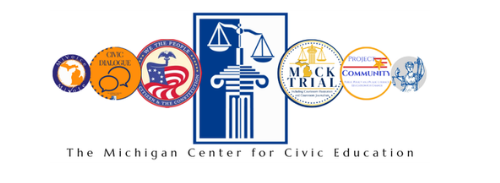Extends students’ understanding of the 14th Amendment, the Constitution, and the history of civil rights in the United States. Students apply knowledge about “equal protection of the laws” to a variety of fact situations and controversies.
Civics Lessons
Equal Protection Analysis
Equal Justice Under Law
In this lesson, students explore the cause-and-effect relationships
between historical events and the development of constitutional
principles that protect the rights of all people in America today. In its first constitutional challenge to the equal protection clause of the Fourteenth Amendment, the U.S. Supreme
Court decided to hear a case brought by a Chinese immigrant, not an American citizen.
Brown v Board of Education (1954)
This case summary provides teachers with everything they need to teach about Brown v. Board of Education (1954). It contains background information in the form of summaries and important vocabulary at three different reading levels, as well a review of relevant legal concepts, diagram of how the case moved through the court system, and summary of the decision. This resource also includes nine classroom-ready activities that teach about the case using interactive methods.
The Exchange: Should Same-Sex Couples Have the Right to Marry
This research and deliberation activity encourages students to look at the issue of same-sex marriage from different points of view.
Does the Constitution Protect Fair Play? Introducing Due Process
In this lesson, students develop a working understanding of due process by discussing relevant Constitutional clauses. They are presented with the Gideon v. Wainwright case and decide whether Clarence Gideon had the right to an attorney, relying on their previous discussion of due process. The lesson ends with a discussion of the importance of the right to due process in criminal proceedings, as well as a discussion of other situations in which the right to due process applies
Civil Conversation on the 14th Amendment
This lesson uses the Civil Conversation strategy to have students take a closer reading of Section 1 of the Amendment
Constitution Day Lesson 14th Amendment
The goal of this activity is to introduce 8th grade students to the Fourteenth Amendment of the U. S. Constitution (equal protection under the law).
Participating in the Jury System
Students participate in activities and discussions about the relationship of a democratic society to its legal institutions, and the issues of fairness and equality under the law and legal system. They learn how constitutional amendments such as the Fourteenth Amendment influence lawsuits, and they will apply concepts within the Bill of Rights to jury trials. Students conduct research to compare the U.S. jury trial system to trial systems in other countries.
Interpreting the Law
Students learn why laws need to be interpreted by discussing laws/constitutional provisions. They present their findings to the class.
Teaching about Due Process
This lesson presents the idea of Due Process. Students learn about Due Process with a scenario that sets out a number of issues that have to do with the due process of law.

